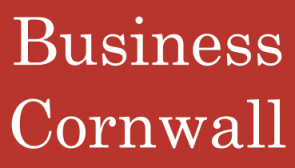Nearly half of UK businesses are concerned about the prospect of Capital Gains Tax (CGT) rising in tomorrow’s Budget – with the bulk of those worried that the Government will struggle to accurately differentiate between ‘business’ and ‘non-business’ assets.
The British Chambers of Commerce (BCC) asked over 1,000 members for their opinions on a range of potential tax changes, which the organisation says will help inform the Chancellor ahead of Tuesday’s crucial Budget.
Asked about Corporation Tax, 90% of companies stated that the Government should proceed with lowering the headline rates at the expense of tax allowances. However, the BCC argues that the Treasury should only push ahead with its simplification programme after a proper economic evaluation of existing allowances and reliefs.
On National Insurance, companies were clear that the planned April 2011 rise should be rolled back in full – with 30% of firms wanting it achieved ‘regardless of the cost’. The BCC has suggested that a 1% rise in VAT would largely offset any potential lost revenue from scrapping the 1% increase to employer NICs.
Businesses were also asked what would be the least damaging way of implementing a potential 2.5% hike in VAT. Exactly half said it should happen in a single increase, from 17.5% to 20%. Just over a third said the rise should be phased over multiple years, and 15% of firms stated that it should be staged over two years.
Commenting ahead of the Budget, David Frost, Director General of the BCC, said: “The Chancellor must tread carefully to avoid introducing damaging new taxes that negatively affect private-sector growth. Short-term revenue gains would be outweighed by longer-term economic consequences, from reduced business investment to lower rates of job creation. Any tax rises must be focused on consumption taxes rather than payroll, income or profits.
“The bulk of the measures to reduce the UK’s unsustainable deficit should come from public spending cuts. It should not come from punishing tax hikes on small and medium-sized firms that will drive our economic recovery.
“Crucially, the Chancellor has a unique opportunity in this Budget to talk positively about doing business in the UK – and he can show that this administration is genuinely pro-enterprise.”
“The Chancellor must tread carefully to avoid introducing damaging new taxes that negatively affect private-sector growth”
Martin Follett, Chairman of the Cornwall Chamber of Commerce and Industry added: “This will be a difficult balancing act for the Government. Our members tell us that the deficit should be brought under control and most recognise that this will include a mix of public-sector cuts and revenue-raising through taxation.
“Our quarterly economic survey tells us that businesses in Cornwall are feeling pretty confident. It also tells us that the recession has not had the same impact here as elsewhere in the UK.
“However, we remain very dependent on public sector finance and jobs. As these are cut it is important that the private sector is encouraged to invest and grow. For this reason we agree with the BCC that tax rises should not target payroll, business income or profits.
“Small businesses will be the driver of recovery in places like Cornwall. We need to avoid disincentives for entrepreneurs at a difficult time for the economy overall.”








